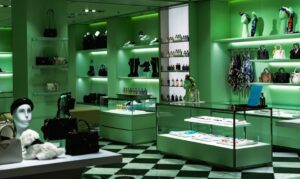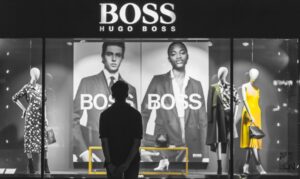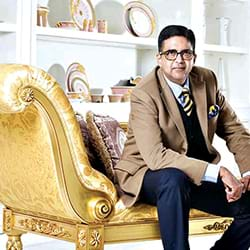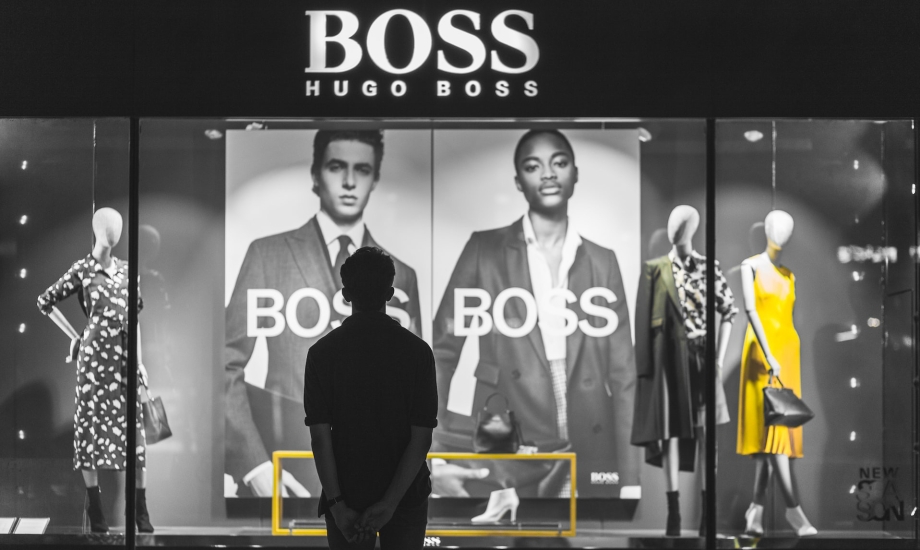What is luxury? What is ‘Luxury Brand Management’? What role does a luxury brand manager play? Here are some answers to these questions and more.
- Luxury is the necessity that begins where necessity ends.
- Beyond the classic forms of ‘functional’ and ‘exchange’ value, luxury actually introduces a new form, that of ‘symbolic value.’
- Fashion is cyclical and frivolous, luxury is timeless and classic. It is ‘fashionable’ to be ‘luxurious’, but fashion is (affordable) luxury.

FASHION A FORM OF LUXURY? Until the turn of the 19th century, fashion belonged to the luxury world, simply because only a handful of the socially rich could afford to discard their clothes even before they were worn out or could buy new ones even when they did not have the necessity. In the 20th century, fashion and luxury started to diverge. The overlap between fashion and luxury is very small. Fashion would like to think of itself as belonging to the world of luxury in order to improve its status. KORIE CULL / UNSPLASH
What is the true concept of luxury? In the words of the famous Coco Channel, ‘Luxury is the necessity that begins where necessity ends’. However, she further clarifies that ‘Luxury is not the opposite of poverty but that of vulgarity’.
How and why is luxury interrelated to affluence? Luxury and money have a strange relationship. Luxury converts the raw material i.e. money into a culturally sophisticated product, namely social stratification. Beyond the classic forms of ‘functional’ and ‘exchange’ value, luxury actually introduces a new form, that of ‘symbolic value.’
Is luxury then a form of art? The two concepts of luxury and art are very closely interlinked and it is impossible to completely separate them. Since the dawn of humanity, objects found in early tombs were both objets d’art and luxury.
Is fashion a form of luxury too? Until the turn of the 19th century, fashion belonged to the luxury world, simply because only a handful of the socially rich could afford to discard their clothes even before they were worn out or could buy new ones even when they did not have the necessity. In the 20th century, fashion and luxury started to diverge.
Today, the overlap between fashion and luxury is very small. Fashion would like to think of itself as belonging to the world of luxury in order to improve its status.
Fashion is cyclical and frivolous, luxury is timeless and classic. It is ‘fashionable’ to be ‘luxurious’, but fashion is (affordable) luxury.
Luxury today: Luxury today is a lifestyle. A life style that most of us want to live or rise into. Luxury aims at elevating people, making them go beyond mere functionality and needs, but seek intangible values which could even be transcendental. Luxury educates taste at its best.
Once a restricted purview of the elites and then the aristocrats, luxury today is for all those who can afford it. There is no more a single elite but multiple ones. Luxury creates a feeling of ‘us’.
From aristocracy to meritocracy, luxury has come a long way.

LUXURY BRAND MANAGEMENT Developed in Europe in the 1990s, Luxury Brand Management is a specialised stream of management that creates skilled managers to act as brand custodians and ensure that the painfully crafted brand values and vision of the creator is not lost or diluted in cultural translations across continents and boundaries. HUGO DELAUNEY / UNSPLASH
Luxury Brand Management – A New Age Career
However, by the end of the 20th century, most luxury brands were majorly controlled by conglomerates. In their bid to expand their commercial outreach, vertical, horizontal as well as geographic expansion was undertaken. New markets like Asia were tapped into. New demographics were sought to be serviced by virtue of democratisation. New product categories were categorised as ‘luxury’. The width, depth and variety on offer increased drastically. New markets brought in new cultural challenges with themselves.
Managing a luxury brand outside of its home country in Europe was no longer as simple as was perceived. A new stream of ‘Luxury Brand Management’ was curated and developed as a holistic management practice that could help new managers maintain the aura, the philosophy and the decorum of the luxury brand outside of its home country.
Developed in Europe in the 1990s, Luxury Brand Management is a specialised stream of management that creates skilled managers to act as brand custodians and ensure that the painfully crafted brand values and vision of the creator is not lost or diluted in cultural translations across continents and boundaries.
Additionally, luxury brands have long been admired for their product quality and how they treat their customers. They serve a demographic that expects nothing but the best, and these brands constantly strive to raise the bar. Managing luxury is far more complex than any other consumer category for the simple reason of its vast variety of product categories, demographics as well as geographies. At any single moment of time, a luxury service provider may have to deal with a luxury connoisseur as well as a luxury initiator. The complexities of their behaviour, response and expectation of ‘luxury’ will be completely and diametrically opposed to each other.
Luxury brand management is the blending of the right marketing campaigns to create and reinforce and retain the brand identity. An effective luxury brand management is one that develops a promise with a consumer, conveys the message of the promise, and lives up to it. Luxury brand management requires an understanding of how to market a luxury brand to attract a specific clientele.

READY TO BE A LUXURY BRAND MANAGER? Luxury Brand Management is an interdisciplinary subject that applies management best practices to luxury services which help businesses in extreme value creation. It is all about analysis and planning of how to increase the perceived value of a luxury product. JULES D / UNSPLASH
What Role Does a Luxury Brand Manager Play?
Luxury brand management is all about analysis and planning of how to increase the perceived value of a luxury product. A luxury brand manager is the one who puts this plan into action.
A luxury brand manager is responsible for conducting market research for luxury products, overseeing and organising marketing campaigns, product and distribution planning, managing brand budgeting and resources, collaborating with luxury designers, and supervising marketing assignments.
Luxury brand managers promote luxury branded goods and services across existing and emerging markets. As more and more people around the world are becoming interested and financially able to own branded luxury goods, new luxury brands are employing innovative marketing and promotional methods to acquire new customers that is challenging the position of the established brands. In turn, the bigger and more established brands are exploring new markets. To further their businesses, luxury brands are employing experts (luxury brand managers) who can customise approaches to maintain brand loyalty of existing customers through exclusive offers and deals, and also build customer base in new territories.
In a nutshell, Luxury Brand Management is an interdisciplinary subject that applies management best practices to luxury services which help businesses in extreme value creation.
 Abhay Gupta
Abhay Gupta
Founder and CEO of Luxury Connect
Abhay Gupta is the Founder and CEO of Luxury Connect and Luxury Connect Business School (LCBS). He is widely recognised as a luxury expert by CNBC, CNN, NDTV Profit, Business India, Economic Times and has established luxury brands like Versace, Versace Home, Versace Collection, Corneliani, John Smedley, Tween Damat ADV, Arredo Classic into the Indian market. A regular speaker at many luxury forums, the Fondazione Altagama has also recognised his contribution to the growth of Italian luxury industry by his pioneering efforts in India. Abhay is also the author of the book ‘The Incredible Indian Luxury Bazaar.’

